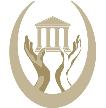Towards peaceful electioneering
22 June 2016
Pockets in the City of Tshwane are beset by violence, with media reports showing burnt-out shells of motor vehicles, and streets littered with burning tyres. One person is said to have been killed in the violence. The violent protests are ostensibly as a result of party members’ unhappiness with the governing party’s National Executive Council’s decision to select a mayoral candidate ahead of the candidates preferred by the Tshwane branch of the governing party.
In addition, last week the Police Minister, Nathi Nhleko, announced that he had established a task team whose mandate is to investigate the “rise in the number of political killings”. He further expressed concern over the number of killings linked to the upcoming elections on 3 August 2016. The South African Human Rights Commission (SAHRC) has reported that over the past five years there have been about 50 politically-related killings, predominantly in KwaZulu-Natal and Mpumalanga. The Institute for Security Studies (ISS) in similar vein notes that political killings are as a result of local conflicts and rivalries.
The Constitution establishes South Africa as a nation whose foundational values include “universal adult suffrage, a national common voters roll, regular elections and a multi-party system of democratic government, to ensure accountability, responsiveness and openness”. Political rights are also enshrined in the Bill of Rights, in terms of which South African citizens are free to make political choices. The Constitution also provides citizens with the right to free, fair and regular elections, while also guaranteeing the same citizens the right to vote in elections, as well as the ability to stand for public office, and, if elected, to hold office.
The Electoral Commission is a body mandated by the Constitution to manage elections at all levels, which also has the added role of ensuring that elections are free and fair. The Electoral Act contains an Electoral Code of Conduct (the Code) aimed at promoting “conditions that are conducive to free and fair elections” and that create a climate of tolerance, free political campaigning, and open public debate. The Code has been agreed to by all the political parties registered to participate in the August 3 elections, as well as the candidates whose names appear on the various party lists.
Pertinently, the Code proscribes violent conduct, in addition to the use of language which provokes violence. The Code also prohibits the intimidation of candidates or voters, in addition to the abuse of positions of power, privilege or influence to influence the outcome of an election. Individuals, as well as political parties, found guilty of abusing the Code can receive a fine and/ or imprisonment. Ultimately, political parties have a duty to manage their constituencies, as well as the processes governing the appointment of electoral candidates, in order to ensure that there is no public violence.
Political parties and candidates should bear in mind that a free and fair election is not just about the processes and vote-counting on Election Day. Election results should be worthy of confidence - arguably the violence, destruction of property, killings, and reported intimidation, cast aspersions on the upcoming elections.
The Centre for Constitutional Rights (CFCR) recognises that the continued election-related violence impacts not just the nation’s foundational values, but also the political rights of individual South Africans. Ultimately, it matters, both locally and in the international arena, that South Africa holds peaceful, credible, and free and fair elections. This creates confidence in South Africa’s democracy, as well as confidence in the State’s ability to abide by the Rule of Law. As such, the CFCR calls for peaceful dialogue in the resolution of conflict, in addition to reminding communities unhappy with political leadership that they can also voice their displeasure at the ballot box come 3 August 2016.
By Phephelaphi Dube: Director, Centre for Constitutional Rights

